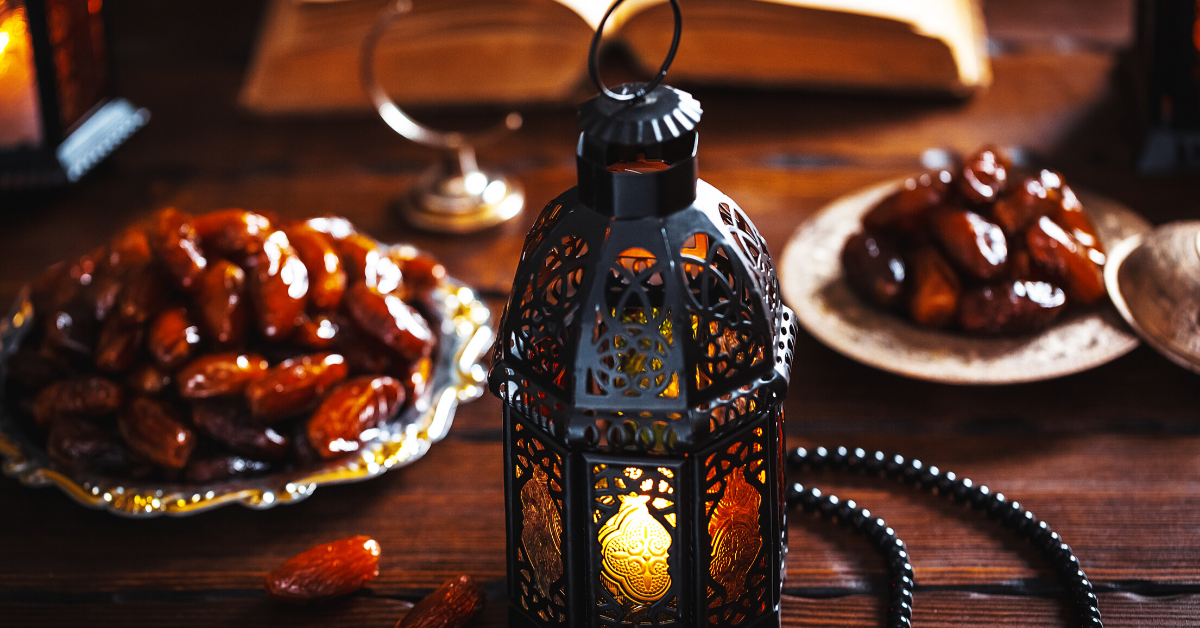by volunteer blogger Bethany Horvat
From April 23 to May 23 of 2020, Muslims all over the world will observe the holiest month in their religious calendar, known as Ramadan. According to Muslim tradition, Ramadan is when the Prophet Muhammad received revelation of the Muslim holy book — the Quran — in the year 610 AD. In observance thereof, Muslims will fast from sunrise to sunset in fulfillment of one of the five Pillars of the Muslim faith, which are: shahada (profession of faith), salat (prayer), zakat (alms/charity), sawm (fasting), and hajj (pilgrimage to Mecca). In order to understand how Ramadan will be impacted this year by the coronavirus pandemic, I had the opportunity to interview Mubarikah Faruk, a Board Member and Assistant Principal of Sunday School for the Dar al-Noor Islamic Community Center in Manassas, Virginia. I am very grateful to Mubarikah for her time and thoughtful explanation of the tradition.
When asked for her description of Ramadan, Mubarikah described it as a time of reflection for the individual on a collective level. It is a time when each member of the Muslim faith denies himself/herself all food and drink for about sixteen hours every day for one month, for the purpose of reflection. During this time, Mubarikah explained, the pangs of hunger and thirst remind the individual to look within themselves and ask what it is he/she can do to better society. Mubarikah compared it to the American tradition of making resolutions in the New Year — a time of reflection when we make concerted efforts to improve ourselves and our world. The goal of Ramadan is to help society by helping oneself. In Islam, society begins on the individual level, spreading from there to the corporate.
Mubarikah explained that prayer is integral to the observance of Ramadan. It is first a time of renewal. Thirst, for example, especially renews a God-consciousness because even though one knows he/she is not being watched, one recalls that God is always watching. It is a time when one queries, “am I a useful contribution to society?” All of this — reflection, God-consciousness, self-introspection — prods one to pray and to seek to improve the world.
One way in which Muslims devote themselves to improving the world is through charitable giving. In Islam, there is what they call a “penalty,” which Mubarikah described as a tax. After expenses, a Muslim gives 2.5% of annual earnings to the Baitul Maal (“House of Wealth”) where it is then distributed to the poor. But Ramadan is also a time of generosity. For example, if one is sick and cannot fast, that person must also give a needy person the same number of meals he/she consumes that day, or alternatively, donate money for those meals. The point is to lift society up by lifting individuals who cannot lift themselves.
Generally, during Ramadan, Muslims gather at their Mosque for daily prayer and for feasting after the fast. Because of the pandemic, prayer will have to take place in private, and feasting together will not be possible. But Mubarikah explained that for Muslims, COVID-19 has caused serious introspection as to what it is that caused the pandemic, and what is is they need to do individually and collectively to undo the damage humans have done to deserve this pandemic, which Muslims believe to be a work of God.
Dar al-Noor in Manassas will make and box food for the hungry and hand out every day during Ramadan at 6:30 PM. Mubarikah extends the invitation to anyone who needs anything to please reach out to Dar al-Noor at any time.
In a cross-faith partnership with Congregation Ner Shalom, Dar al-Noor is a level one Good Neighbor Partner (GNP) for an Afghan family of eight that recently arrived in Northern Virginia. Level one GNPs sponsor newly arrived refugee families through home set-up, rental assistance, and adjustment support. If you or your congregation are interested in becoming a GNP, you can fill out the interest form on our website.
